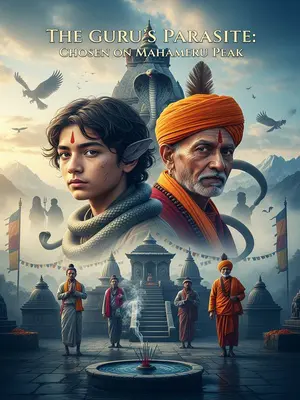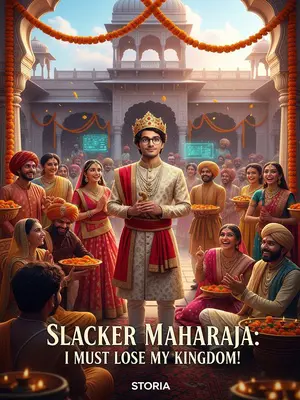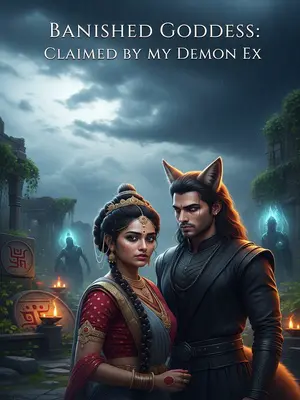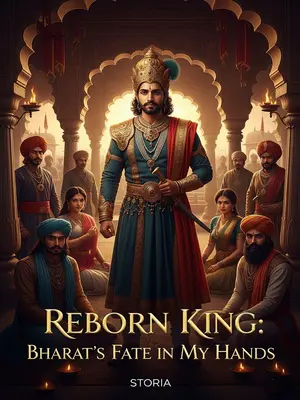Chapter 1: The Early Years of Suraj Mehra
Who am I?
I started drawing in prana at the age of eight.
In those childhood mornings, sunlight would filter through the cracks in our red-tiled Kaveripur house, painting golden stripes across the mud floor. I’d sit cross-legged next to my mother as she softly recited her daily prayers. The air always carried the faint, sweet scent of agarbatti, its smoke curling up towards the framed photo of our kuldevata on the shelf, weaving slow spirals. As she stroked my hair, her glass bangles would clink gently—a sound that became my private comfort. Her blessing would follow, always the same: “May you shine, beta.” In that moment, the world was no bigger than her lap, the temple bell’s morning call, and my father’s sharp voice echoing from the other room, insisting I study harder. Even at eight, I began to sense a deeper river within me—a current stronger than the holy Kaveri itself, pulsing quietly beneath the noise of childhood.
Built my foundation at eighteen.
At eighteen, while other boys dreamt of clearing government exams and their first Bullet bike, my universe had shrunk to the sadhana mat, the smell of earth, and the relentless discipline of inner cultivation. The aunties in our lane would whisper, “Dekho, Mehraji’s son Suraj—he sits so still, like a muni from his last janam!” I’d keep my gaze down, toes pressed into the cool mud, drawing prana with such focus that my mother would bring hot chai to me three times a day. My foundation secure, my family’s name soared—every aunty in town started bringing rishtas to our doorstep, their voices a constant backdrop to my silent resolve.
Reached the Shukla Mandir stage at forty-eight.
By forty-eight, my friends had long since married, had children, managed small shops, or migrated to Madras. I, still in my ochre robes, entered the Shukla Mandir stage. That week, the temple priests themselves came home, offering garlands and oil lamps. “Your son will bring prosperity, didi,” neighbours would say, swelling my father’s chest with pride. The puja room overflowed with marigolds, ghee lamps flickered late into the night, and for a while, our home was the heart of Kaveripur’s blessings.
Formed my Golden Core at one hundred and twenty, gaining a lifespan of a thousand years.
At one hundred and twenty, while the grandsons of my childhood friends played in the mango orchards, I—hair white but spirit unbowed—formed my Golden Core. The entire extended clan gathered at our ancestral home, relatives arriving from Bengaluru and Tiruchi, their laughter and arguments filling the old halls. My mother, now as thin and fragile as a reed, pressed my hands in hers, tears running down her cheeks as she whispered, “Jeete raho, beta.” The temple bells that day rang louder, as if echoing my name across every street in Kaveripur.
Within a hundred years of forming my core, I shattered it and formed a Nascent Soul, and the phenomenon that accompanied my breakthrough was of the highest grade.
Less than a century later, I did what was spoken of only in stories my grandfather told under the neem tree at dusk: I shattered my core, forming my Nascent Soul. The sky over Kaveripur turned saffron; peacocks danced with wild abandon, and the old banyan at the edge of town dropped every leaf in a single afternoon. Elders declared it a sign from the devas. My mother, frail but radiant, lit a lamp in every room, her prayers twining through the night like a protective shawl around me.
Who am I?
I am the most talented genius in the history of the Kaveripur Realm.
My name became a rumour on every wind, written in the dust of every leaf. During Ganesh Chaturthi, little boys painted their faces, playing at being me, waving sticks and shouting, “I am Suraj Mehra, Maharishi of Kaveripur!”
At three hundred and eighty-eight, I ascended to Spirit Transformation and entered the Dakshina Maha Pradesh.
At three hundred and eighty-eight, when most would have become legend, I left my home realm. I carried only a tattered angavastram and my mother’s old damru, stepping into the grandeur of Dakshina Maha Pradesh. The journey was long—across deserts, over rivers, through forests where jackals howled and the wind brought prayers in unfamiliar tongues. Each step away from Kaveripur was a step into the unknown, my heart heavy with longing and yet eager for what lay ahead.
After that came the Out-of-Body stage, Division of Spirit, Unity, Tribulation Crossing, Great Ascension—never slower than anyone.
With every stage, from Out-of-Body to the unity of self, I was never outpaced. Not once did I pause, not once did I look back—except, sometimes, under a full moon, when the taste of my mother’s kheer or the melody of her lullaby would haunt my dreams.
In less than seven thousand years, I attained the Param Siddhi and ascended, entered the Amara Lok, became a Maharishi, and from then on lived freely and unrestrained, bound by nothing.
Seven thousand years, and I stepped into the legendary Amara Lok—a realm where mountains floated and the air thrummed with ancient mantras. I was called Maharishi, and for a time, I believed myself above fate. The chain of karma that bound others seemed only a thin thread to me.
In my life, I have met countless prodigies, but to me, they were merely the bare minimum required to even meet me.
Prodigies came and went—some tried to measure up, others to challenge me. Their brilliance felt like a candle before my blazing sun. Yet pride gave way to emptiness. What is the point of being the tallest tree if the forest is silent?







